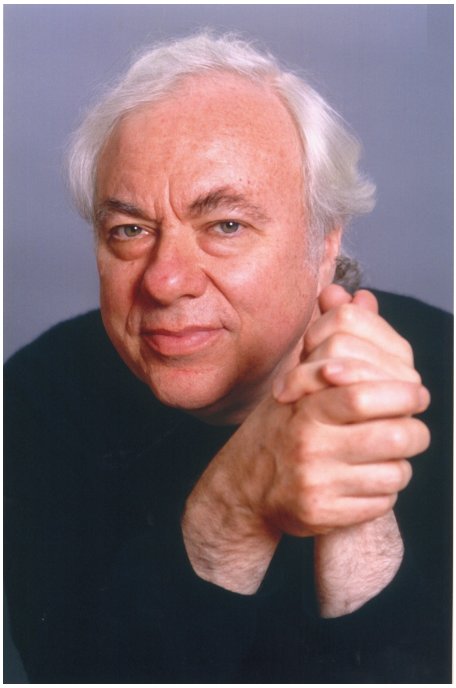

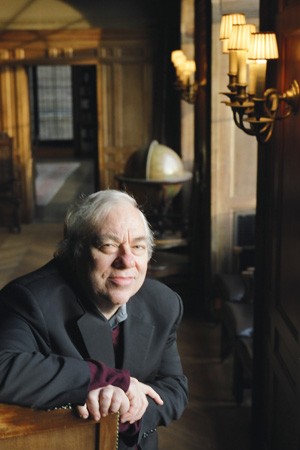 BD: From whence stems this additional conviction?
BD: From whence stems this additional conviction?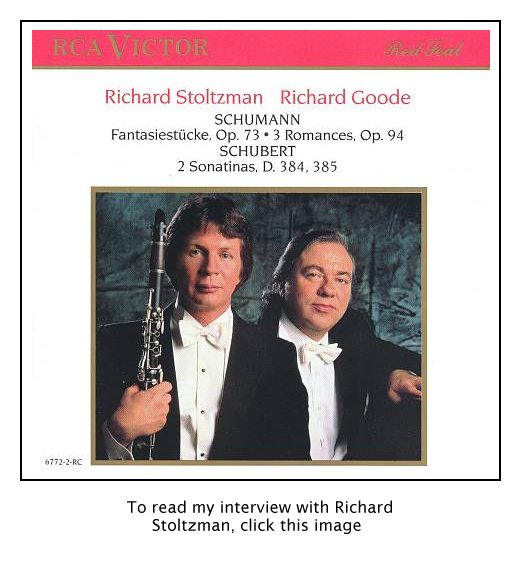 BD: You have to do it, then, in public?
BD: You have to do it, then, in public?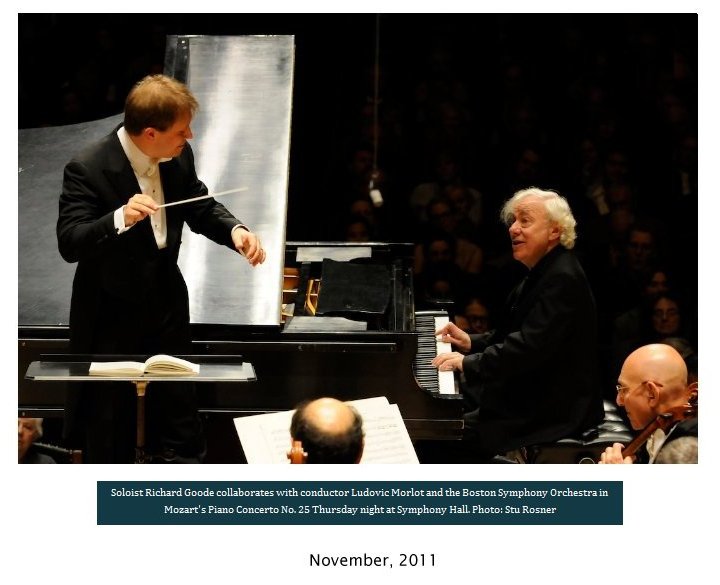
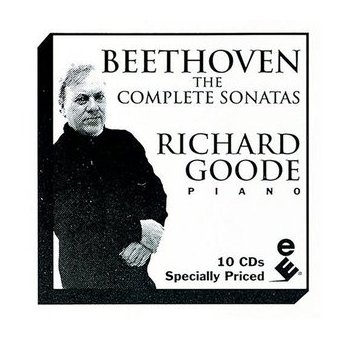 RG: They are
two great composers whose piano music requires an enormously different approach
— physically and other ways, also. There’s a great challenge
to play a lot of Chopin. The experience of immersing myself in Beethoven
made me realize this, since it’s not something I’ve ever done before.
I’ve never set out to do the music of a certain composer, and do a great
deal of it. I’ve always chosen pieces I love from various repertoire.
In order to play Chopin — really lean a lot more about
Chopin — it probably is necessary to play a great deal of Chopin, to really
immerse yourself in it. Of course I’ve played works of Chopin over
the years, but not as much as I’d like, so that’s my next project.
RG: They are
two great composers whose piano music requires an enormously different approach
— physically and other ways, also. There’s a great challenge
to play a lot of Chopin. The experience of immersing myself in Beethoven
made me realize this, since it’s not something I’ve ever done before.
I’ve never set out to do the music of a certain composer, and do a great
deal of it. I’ve always chosen pieces I love from various repertoire.
In order to play Chopin — really lean a lot more about
Chopin — it probably is necessary to play a great deal of Chopin, to really
immerse yourself in it. Of course I’ve played works of Chopin over
the years, but not as much as I’d like, so that’s my next project.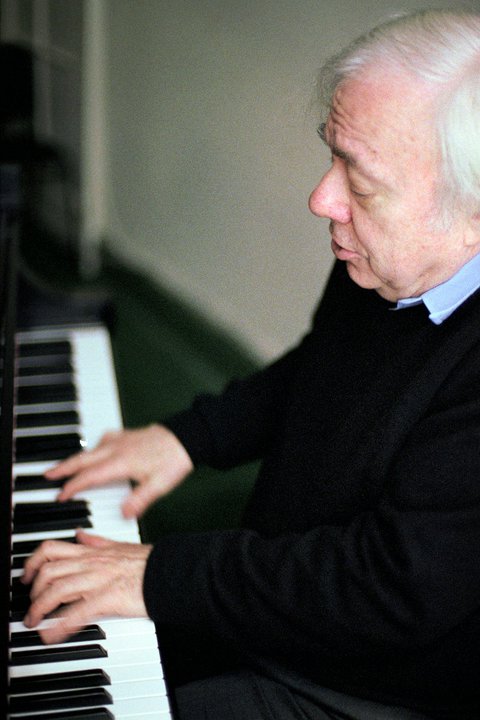 RG: Some never do, of course, and some you only
have to play a few seconds and realize you’ll be comfortable. Maybe
on the average it takes a few hours, which is just as well, because that’s
all we get, usually! [Both laugh] I do respect those pianists
who travel around with their own instruments because they know what they
want. It’s sometimes just terribly important to be able to be comfortable
and be able to realize what you want. But I must say there is a certain
interest and a sort of sporting feeling, of trying to make friends with each
instrument as it comes along, and see what you can do.
RG: Some never do, of course, and some you only
have to play a few seconds and realize you’ll be comfortable. Maybe
on the average it takes a few hours, which is just as well, because that’s
all we get, usually! [Both laugh] I do respect those pianists
who travel around with their own instruments because they know what they
want. It’s sometimes just terribly important to be able to be comfortable
and be able to realize what you want. But I must say there is a certain
interest and a sort of sporting feeling, of trying to make friends with each
instrument as it comes along, and see what you can do.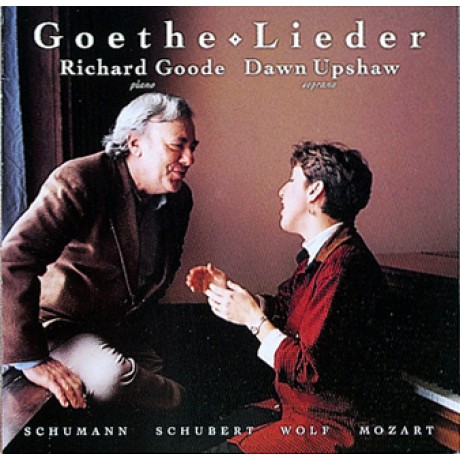 RG: It’s sort
of changing. I used to play maybe seventy or even seventy-five percent
chamber music and the rest solo recitals and orchestra. Now I would
say I maybe play ninety percent solo music — much less chamber than I used
to.
RG: It’s sort
of changing. I used to play maybe seventy or even seventy-five percent
chamber music and the rest solo recitals and orchestra. Now I would
say I maybe play ninety percent solo music — much less chamber than I used
to.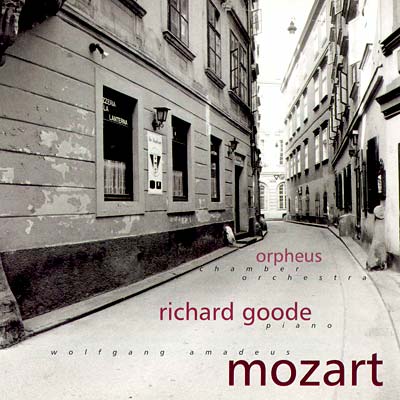 RG: I guess you
could. I have enjoyed enormously working with the conductorless Orpheus
Orchestra, and one of the reasons is that because of the exigencies of playing
without a conductor, they have to hear extraordinarily acutely what you’re
doing. You have to work together. That means working on a Mozart
concerto for ten hours, maybe. That doesn’t seem to me too much, if
people really want to get to know intimately how things go, to work it out.
We can also talk out some things that are not necessary to know for the
performance, but are just interesting. We do work out certain things
together so the winds and the piano are really clicking, and hash out certain
kinds of phrases and all kinds of things. That’s a lovely thing to
do, and it seems to me that in an ideal chamber-music situation you would
have that time, too. Mozart concertos should have at least that.
Of course you’re in a situation sometimes where the orchestra’s tremendously
responsive. You play together with the conductor and you see eye to
eye; it doesn’t have to take a very long time, but it’s nice to know that
there is that time.
RG: I guess you
could. I have enjoyed enormously working with the conductorless Orpheus
Orchestra, and one of the reasons is that because of the exigencies of playing
without a conductor, they have to hear extraordinarily acutely what you’re
doing. You have to work together. That means working on a Mozart
concerto for ten hours, maybe. That doesn’t seem to me too much, if
people really want to get to know intimately how things go, to work it out.
We can also talk out some things that are not necessary to know for the
performance, but are just interesting. We do work out certain things
together so the winds and the piano are really clicking, and hash out certain
kinds of phrases and all kinds of things. That’s a lovely thing to
do, and it seems to me that in an ideal chamber-music situation you would
have that time, too. Mozart concertos should have at least that.
Of course you’re in a situation sometimes where the orchestra’s tremendously
responsive. You play together with the conductor and you see eye to
eye; it doesn’t have to take a very long time, but it’s nice to know that
there is that time.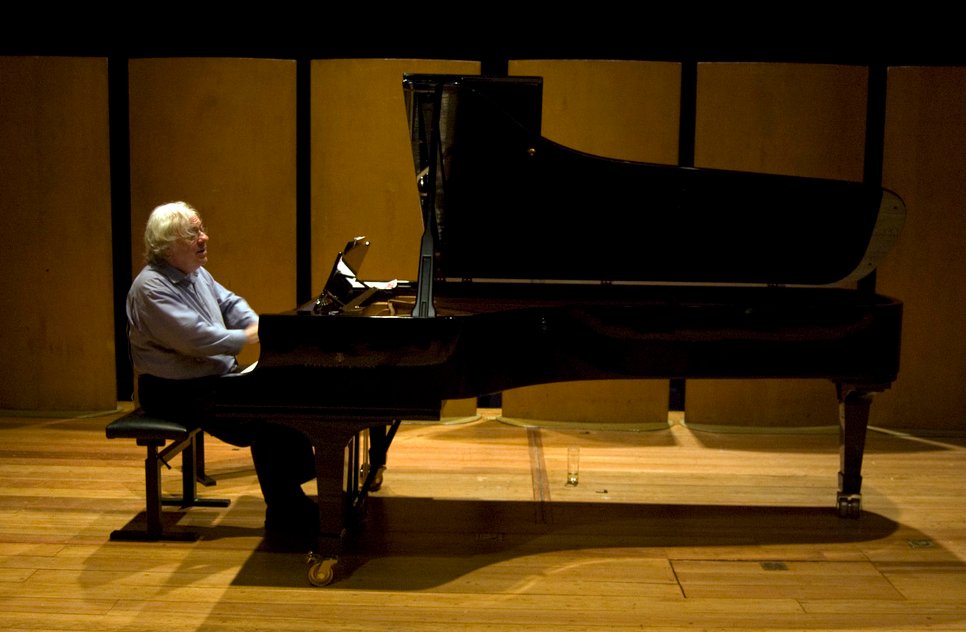
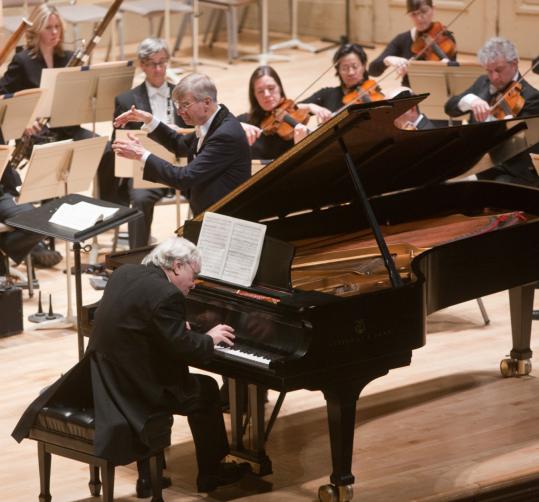 RG: When I think about it, there are some wonderful
pianists around, actually, and the instrument has certainly found itself
capable of great things. People keep on writing for it. One thought
that comes to mind is, as we were talking about, how many pianists there
are and how relatively small is the demand. But I find myself hoping
that more people simply will learn to play the piano for themselves for the
joy of it as a avocation. I wonder, in a time when CDs are really so
much easier than learning to play the instrument, if people really have very
much motivation. But that was the great age of piano writing, at the
time when musical amateurs had pianos and people were encouraged, and the
piano was a home entertainment center. In an age of phonography, I
don’t know what the future of the piano is as an instrument for people to
experience music on for themselves. I’m not sure — if
I weren’t a pianist, would I be playing the piano? It’s hard to know.
I don’t feel any doubt about the future of piano playing for professional
people and people listening to it on phonographs, but for people simply
playing the instrument and getting to know music through the piano, I don’t
know. Of course, I cannot say whether music is or is not developing
in such a way. Maybe it won’t be possible anyway to get to know music
through the piano. People playing modern symphonies in four-hand arrangements
is a little hard to imagine, but that’s one of the things that I would hope.
It’s also the thing that leads to the most intelligent listening.
When people realize what it’s like to play an instrument and to make music
for themselves, that’s the most active listening, which is the best listening.
I’m not saying that active listening can’t take place through the phonograph.
Obviously it can, but it becomes a little easy to sort of let it wash over
you. [Pauses for a moment to ponder
this idea.] Interesting question about, “Is it fun playing
the piano?” But it’s true. Of course it is; it has to be.
I can’t imagine many instrumentalists who don’t find what they do tremendous
pleasure. But I studied with Rudolf Serkin for whom it’s almost to
the opposite — music was something too serious to be
bound up with the fun of piano playing. I almost think that would
be a paradigm of his philosophy. There’s a certain puritanical aspect,
a rigor, and a looking down on the pleasurable aspect of playing. I
just realized that when I say I really did come from that school, and I respected
it in many ways, but I must say it goes against my grain just because playing
the piano is enormous fun, among other things!
RG: When I think about it, there are some wonderful
pianists around, actually, and the instrument has certainly found itself
capable of great things. People keep on writing for it. One thought
that comes to mind is, as we were talking about, how many pianists there
are and how relatively small is the demand. But I find myself hoping
that more people simply will learn to play the piano for themselves for the
joy of it as a avocation. I wonder, in a time when CDs are really so
much easier than learning to play the instrument, if people really have very
much motivation. But that was the great age of piano writing, at the
time when musical amateurs had pianos and people were encouraged, and the
piano was a home entertainment center. In an age of phonography, I
don’t know what the future of the piano is as an instrument for people to
experience music on for themselves. I’m not sure — if
I weren’t a pianist, would I be playing the piano? It’s hard to know.
I don’t feel any doubt about the future of piano playing for professional
people and people listening to it on phonographs, but for people simply
playing the instrument and getting to know music through the piano, I don’t
know. Of course, I cannot say whether music is or is not developing
in such a way. Maybe it won’t be possible anyway to get to know music
through the piano. People playing modern symphonies in four-hand arrangements
is a little hard to imagine, but that’s one of the things that I would hope.
It’s also the thing that leads to the most intelligent listening.
When people realize what it’s like to play an instrument and to make music
for themselves, that’s the most active listening, which is the best listening.
I’m not saying that active listening can’t take place through the phonograph.
Obviously it can, but it becomes a little easy to sort of let it wash over
you. [Pauses for a moment to ponder
this idea.] Interesting question about, “Is it fun playing
the piano?” But it’s true. Of course it is; it has to be.
I can’t imagine many instrumentalists who don’t find what they do tremendous
pleasure. But I studied with Rudolf Serkin for whom it’s almost to
the opposite — music was something too serious to be
bound up with the fun of piano playing. I almost think that would
be a paradigm of his philosophy. There’s a certain puritanical aspect,
a rigor, and a looking down on the pleasurable aspect of playing. I
just realized that when I say I really did come from that school, and I respected
it in many ways, but I must say it goes against my grain just because playing
the piano is enormous fun, among other things!| Richard Goode has been hailed for
music-making of tremendous emotional power, depth, and expressiveness, and
has been acknowledged worldwide as one of today’s leading interpreters of
Classical and Romantic music. In regular performances with the major orchestras,
recitals in the world’s music capitals, and acclaimed Nonesuch recordings,
he has won a large and devoted following. In an extensive profile in the
New Yorker, David Blum wrote: “What one remembers most from
Goode’s playing is not its beauty—exceptional as it is—but his way of coming
to grips with the composer’s central thought, so that a work tends to make
sense beyond one’s previous perception of it ... The spontaneous formulating
process of the creator [becomes] tangible in the concert hall.” According
to The New York Times, “It is virtually impossible to walk away
from one of Mr. Goode’s recitals without the sense of having gained some new
insight, subtly or otherwise, into the works he played or about pianism itself.” His first recording of the five Beethoven Concertos with Ivan Fisher and the Budapest Festival Orchestra, released in 2009 by Nonesuch Records, was nominated for a Gramophone magazine “Concerto of the Year” award joining his historic recording of the complete Beethoven Sonatas and equally acclaimed recent recordings of Mozart and Bach. In reviewing the Beethoven concertos recordings, the Times of London wrote: “Goode’s special gift has always been his selfless artistry: his penetrating intellect, warm heart and nimble fingers are entirely placed at the composer’s service.” The Financial Times called the set “a landmark recording of the Beethoven concertos," adding that "Goode makes the familiar sound unexpectedly fresh.” Richard Goode will be touring nationally and internationally during the 2011–2012 season, including performances with the Metropolitan Opera Orchestra led by James Levine, performing the Mozart Concerto No. 25, K503; the Los Angeles Philharmonic with Gustavo Dudamel, performing the Mozart Concerto No. 20, K 466; a West Coast tour with the Boston Symphony; and recitals at Carnegie Hall, as well as in Chicago, Philadelphia, Berkeley, Kansas City, Baltimore, Detroit, and at universities around the country. In Europe, Mr. Goode will be performing in major series in cities including Birmingham, Budapest, Genoa, Madrid, and Paris, as well as touring through the UK, including performances at London's Royal Festival Hall and Wigmore Hall. In recent seasons Mr. Goode curated a multi-event residency as one of South Bank Centre’s Artist-in-Residence including collaborative performances with pianist Jonathan Biss. This followed his "engrossing" (The New York Times) eight-event Carnegie Hall Perspectives. This celebration of Mr. Goode’s artistry also included master classes at the City’s three leading conservatories—Juilliard, Manhattan, and Mannes—and two illustrated talks on his Perspectives repertoire at the Metropolitan Museum of Art. Richard Goode was honored for his contributions to music with the first ever Jean Gimbel Lane Prize in Piano Performance, which culminated in a two-season residency at Northwestern University in Evanston, Illinois, and in May 2010, he was awarded an Honorary Fellowship from Guildhall School of Music and Drama in London. A native of New York, Richard Goode studied with Elvira Szigeti and Claude Frank, with Nadia Reisenberg at the Mannes College of Music, and with Rudolf Serkin at the Curtis Institute. He has won many prizes, including the Young Concert Artists Award, First Prize in the Clara Haskil Competition, the Avery Fisher Prize, and a Grammy Award. His remarkable interpretations of Beethoven came to national attention when he played all five concerti with the Baltimore Symphony under David Zinman, and when he performed the complete cycle of sonatas at New York’s 92nd Street Y, and Kansas City’s Folly Theater. In addition to his most recent release, Richard Goode, an exclusive Nonesuch artist, has made more than two-dozen recordings, including Mozart solo works as well as Concerti with the Orpheus Chamber Orchestra, the complete Beethoven Piano Sonatas, the complete Partitas by J.S. Bach, and solo and chamber works of Brahms, Schubert, Schumann, Chopin, Busoni, and George Perle. Goode is the first American-born pianist to have recorded the complete Beethoven Sonatas, which were nominated for a Grammy Award and universally acclaimed. With soprano Dawn Upshaw, he has recorded Goethe Lieder of Schubert, Schumann, and Hugo Wolf for Nonesuch. The four recordings of Mozart Concerti with the Orpheus Chamber Orchestra were received with wide critical acclaim, including many “Best of the Year” nominations and awards and his recording of the Brahms sonatas with clarinetist Richard Stoltzman won a Grammy Award. Mr. Goode’s first, long-awaited Chopin recording was also chosen Best of the Month by Stereo Review and described as “absolutely magical ... glorious playing.” Over the last seasons, Richard Goode has appeared with many of the world’s greatest orchestras, including the Boston Symphony Orchestra under Levine, Haitink, and Ozawa; the Chicago Symphony under Eschenbach; the Cleveland Orchestra under Zinman; the San Francisco Symphony under Blomstedt and Alan Gilbert; the New York Philharmonic with Sir Colin Davis; the Toronto Symphony with Peter Oundjian; and the St. Louis Symphony under David Robertson. He has also appeared with the Orchestre de Paris, made his Musikverein debut with the Vienna Symphony and has been heard throughout Germany in sold-out concerts with the Academy of St. Martin-in-the-Fields under Sir Neville Marriner. Mr. Goode serves with Mitsuko Uchida as co-Artistic Director of the Marlboro Music School and Festival in Marlboro, Vermont. He is married to the violinist Marcia Weinfeld, and, when the Goodes are not on tour, they and their collection of some 5,000 volumes live in New York City. -- From the Nonesuch website
-- Links refer to my interviews elsewhere on my website. BD |
This interview was recorded at his hotel in Evanston,
IL on February 19, 1990. Sections were used (along
with recordings) on WNIB two months later, and again in 1993 and 1998.
It was transcribed and posted on this website in 2012.
To see a full list (with links) of interviews which have been transcribed and posted on this website, click here.
Award - winning broadcaster Bruce Duffie was with WNIB, Classical 97 in Chicago from 1975 until its final moment as a classical station in February of 2001. His interviews have also appeared in various magazines and journals since 1980, and he now continues his broadcast series on WNUR-FM, as well as on Contemporary Classical Internet Radio.
You are invited to visit his website for more information about his work, including selected transcripts of other interviews, plus a full list of his guests. He would also like to call your attention to the photos and information about his grandfather, who was a pioneer in the automotive field more than a century ago. You may also send him E-Mail with comments, questions and suggestions.